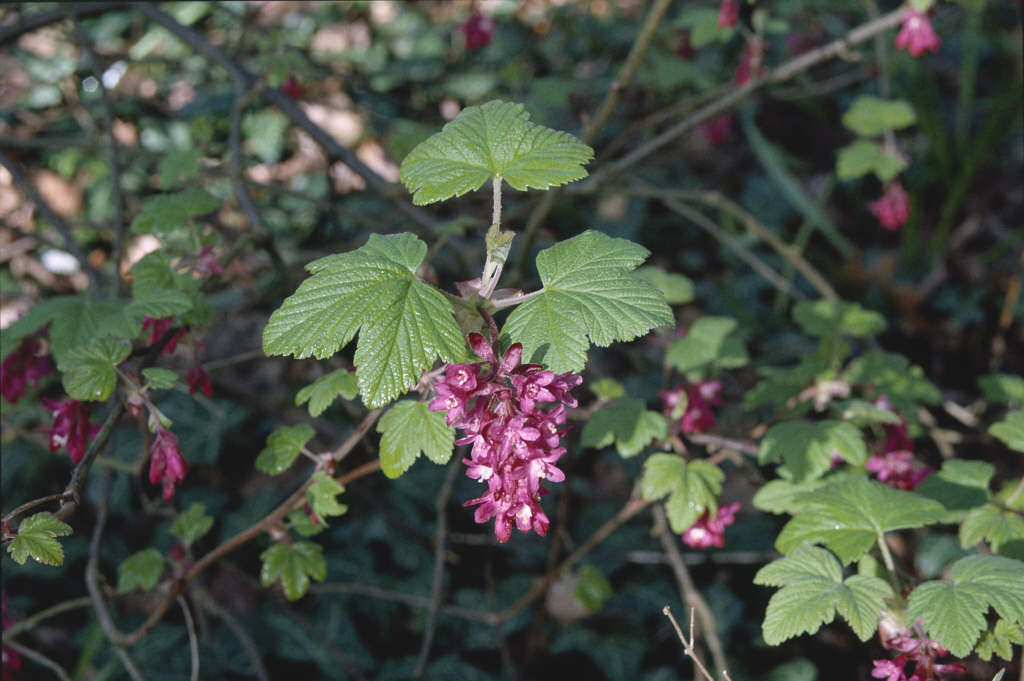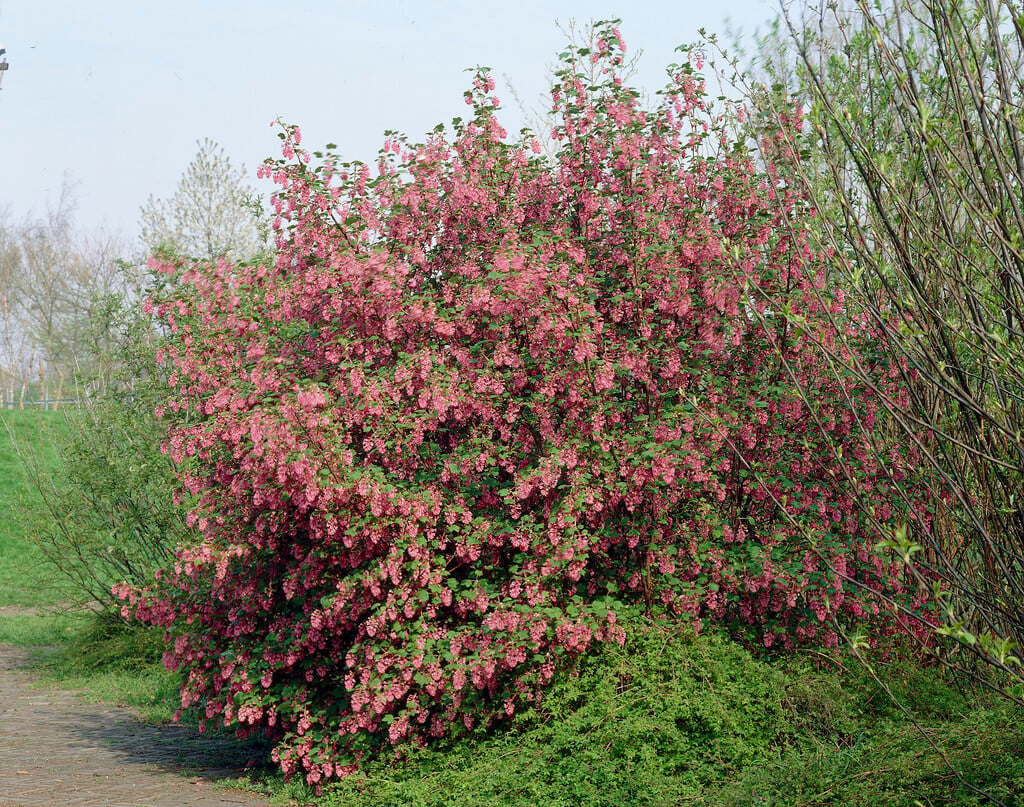Size
Ultimate height
1.5–2.5 metresTime to ultimate height
5–10 yearsUltimate spread
1–1.5 metresGrowing conditions
Moisture
Moist but well–drained, Well–drainedpH
Acid, Alkaline, NeutralColour & scent
| Stem | Flower | Foliage | Fruit | |
| Spring | Red | Green | ||
|---|---|---|---|---|
| Summer | Green | Black | ||
| Autumn | ||||
| Winter |
Position
- Full sun
Aspect
South–facing or North–facing or West–facing or East–facing
Exposure
Exposed or Sheltered Hardiness
H6Botanical details
- Family
- Grossulariaceae
- Native to GB / Ireland
- No
- Foliage
- Deciduous
- Habit
- Bushy
- Genus
Ribes can be deciduous or evergreen shrubs, sometimes spiny, with simple, usually palmately lobed leaves and small tubular or bell-shaped, solitary or racemose flowers borne in spring or summer, followed by juicy, sometimes edible berries
- Name status
Accepted
How to grow
Cultivation
Easy to grow in moderately fertile well-drained soil in full sun. Useful for informal hedging
Propagation
Propagate by hardwood cuttings in winter
Suggested planting locations and garden types
- Coastal
- Cottage and informal garden
- City and courtyard gardens
- Wildlife gardens
- Flower borders and beds
- Hedging and screens
Pruning
Pruning group 2 or Pruning group 13 if wall trained, in late summer; trim hedges after flowering
Pests
May be susceptible to scale insects, gall mites, gall midge and aphids
Diseases
May be susceptible to currant leaf spot, powdery mildews, coral spot, rust diseases and sometimes honey fungus
Get involved
The Royal Horticultural Society is the UK’s leading gardening charity. We aim to enrich everyone’s life through plants, and make the UK a greener and more beautiful place.

